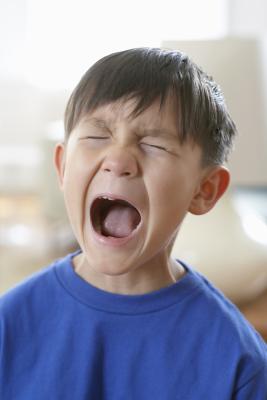Toddler conduct disorder is an umbrella term used to describe a spectrum of behaviors. Before attaching it to your toddler’s behavior, however, you should distinguish between normal developmental behaviors, such as short tantrums or responding with “no” to your requests, and deeper, more harmful misbehavior that show the warning signs of a conduct disorder.
Identification
Several warning signs can help parents, caregivers, social service workers and therapists identify a toddler conduct disorder. Toddlers with this behavioral problem often show little regard for the health and happiness of others, and will repeatedly try to injure animals or people. They often destroy property, including their own toys. They break rules for the sake of breaking them, even when they do not benefit from doing so. They may appear unfocused, depressed or hyperactive.
Time Frame
Toddlers often go through phases of misbehavior, especially when coping with a major life change or when experiencing frustration during a developmental leap. However, if a misbehavior continues for several months and seems independent of a contextual trigger, the child may have a conduct disorder.
Factors
Several factors can promote a toddler developing a behavioral disorder. Toddlers who have a developmental delay or a physical disability that frustrates them may act out with misbehavior. Children who have experienced bullying or abuse may develop conduct disorder. Toddlers with attention disorders or hyperactivity may lack self control, resulting in impulsive, sometimes violent, behavior.
Expert Insight
Several specialists can help family members with toddlers who show extreme misbehavior that may be a conduct disorder. Child psychologists, child psychiatrists, family therapists and social service agencies that specialize in early intervention can provide support and methods for treating specific disorders.
Prevention/Solution
While every toddler has a unique situation and responds to treatment differently, certain strategies typically help families of toddlers with conduct disorder. Utilizing positive reinforcement, maintaining a daily routine, providing fair and consistent consequences and getting outside help can create a more positive home environment conducive to improved behavior.





